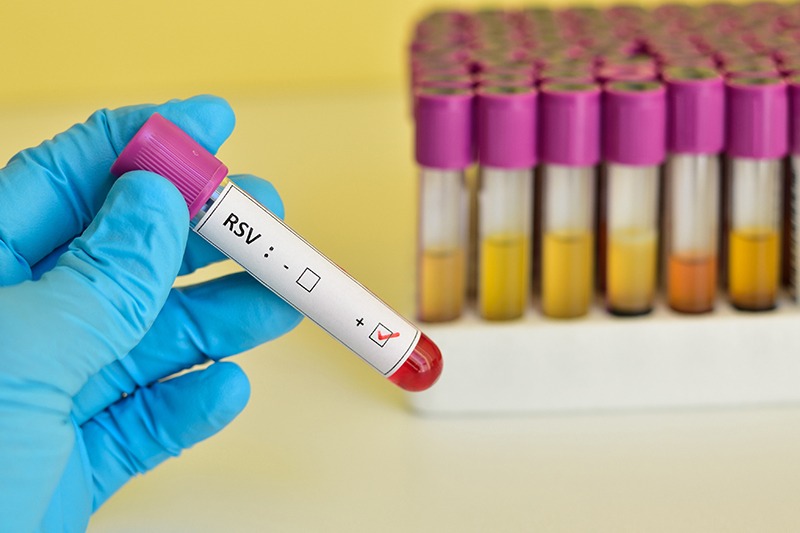RSV surge targets two age groups

As temperatures drop and people retreat indoors to avoid winter weather, they become more susceptible to the usual colds and flus the season brings. However, there is another illness to be aware of.
Cases of respiratory syncytial virus, known as RSV, usually rise during colder months when people spend more time indoors. The Centers for Disease Control reported a surge in detected cases as early as September, and numbers continued to climb through the end of October.
RSV can be deadly “typically in young babies and young children with health problems like immunodeficiency or congenital heart disease,” says Kelly Latimer, MD, Associate Professor of EVMS Family and Community Medicine, “but it can and does kill older adults too.”
Why are members of those populations most at risk? Dr. Latimer says, “Young children naturally have smaller airways in their lungs so the swelling that occurs in the lower respiratory tract can affect breathing more. Adults with lung disease also may have tenuous lungs and can’t tolerate a narrowing of the airways.”
“Most people have had RSV by the time they are two years old,” says Dr. Latimer. “People at risk for severe disease include those who are less than 6 months old, born premature, kids with lung disease such as cystic fibrosis, those who are immunocompromised, have congenital heart disease, asthma, cancer, Down Syndrome or chronic lung disease. Exposure to second-hand smoke is also a risk factor.”
Currently, there is no vaccine for RSV, so Dr. Latimer advises following American Academy of Pediatrics guidelines for “high-risk children who should get the monoclonal antibody palivizumab during RSV season to prevent RSV infection.”
The virus is spread in the air by large droplets and by direct contact. Regularly disinfecting surfaces and staying away from sick people are essential for lowering your risk of contracting RSV.
“RSV can survive for several hours on hands and anything that a sick person contaminates,” says Dr. Latimer.
She offers the following tips to help you and your family avoid RSV and stay healthy this coming flu season:
- Wash your hands often.
- Cover your cough.
- Wear a mask. When everyone was wearing masks during the COVID-19 pandemic, the incidence of RSV dropped dramatically.
- Stay away from sick people.
To learn more about RSV or set up an appointment with a physician, contact EVMS Family and Community Medicine.